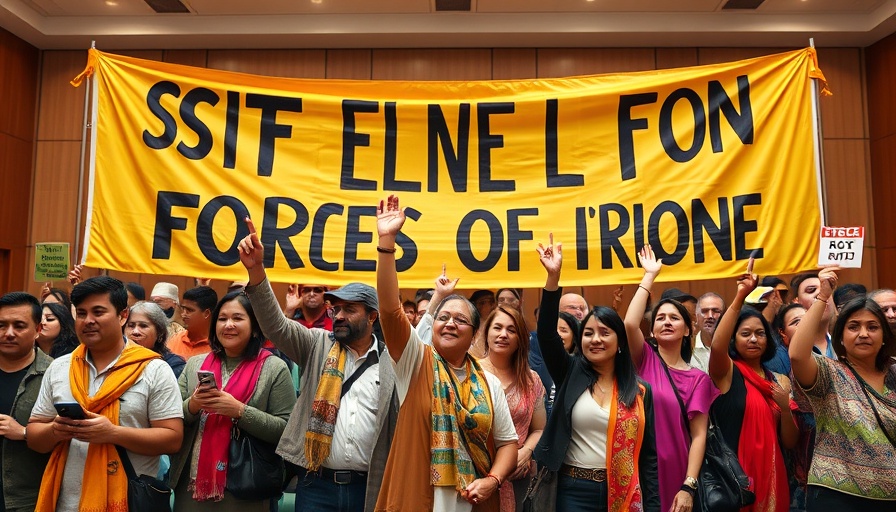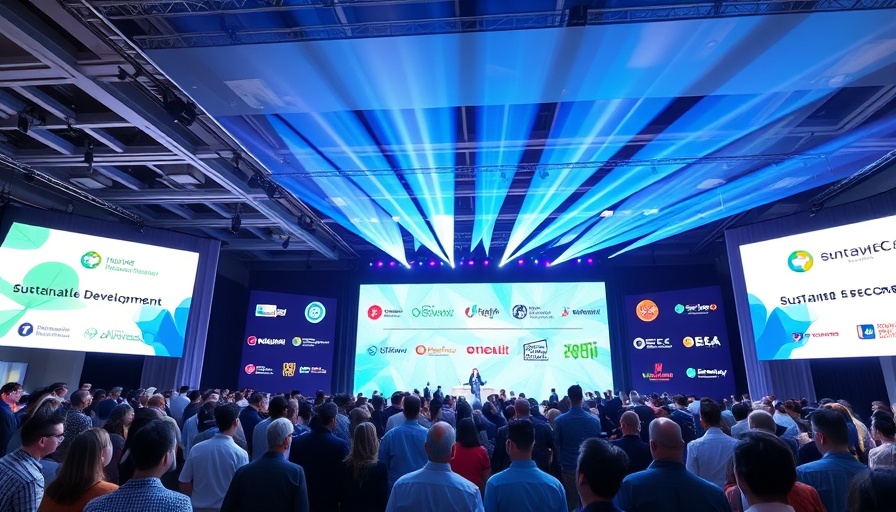
How Border Restrictions Are Shaping Global Environmental Dialogue
In a world increasingly focused on tackling climate change and its broad impacts, the voices of those most affected are alarmingly absent from critical discussions. As tighter borders and more stringent anti-immigrant policies emerge in the Global North, the youth of climate-vulnerable nations are finding themselves barred from important summits, where decisions that directly influence their communities are made.
Take, for instance, 24-year-old Roaa from Sudan, a climate activist who faced further hardships when her visa application to attend a United Nations climate conference was denied. Roaa spent significant time and money preparing for the conference only to be shut out in an administrative process that seems to favor those from wealthier nations. "It felt like I was less than those people," she shared, reflecting a sentiment echoed by many from the Global South, stressing the point that those bearing the brunt of climate crises are often not in the room where these crucial discussions take place.
The Economic Burden of Exclusion
These barriers have not just personal impacts; they carry a hefty economic price as well. Research indicates that African nations alone lost approximately €60 million in rejected visa applications in 2024, marking a rise from €54 million the previous year. With such rejection rates, it's evident that the voices of those most affected are consistently marginalized, ultimately impacting policy directions and their ability to contribute meaningfully to solutions.
A Growing Divide: The North versus the South
The rise of populist attitudes and far-right politics in countries like Italy, Germany, and the US fuels already-present anti-immigrant sentiments, making it even harder for representatives from vulnerable nations to advocate for their needs. The challenges they face complicate the fabric of global environmental dialogues, leading to a significant imbalance in the participation of nations that contribute the least to carbon emissions.
With major international conferences being hubs for the big decisions concerning global commitments, the disparity is glaring. As Kathryn Nwajiaku-Dahou highlights, "If those who are expected to implement global policies are not represented, the risk of ineffective, unaccountable outcomes increases dramatically." This lack of representational equity in global forums creates an environment where solutions may not fully encompass the realities faced by those in the Global South.
Strategies for Enhancing Inclusivity in Climate Talks
Moving forward, there are several strategies that policymakers and international organizations can employ to make high-level discussions more inclusive. For one, revising visa policies and creating streamlined processes that prioritize the participation of representatives from underrepresented nations could spur meaningful dialogue. Additionally, organizations such as the United Nations Framework Convention on Climate Change (UNFCCC) are taking steps to diversify participation by boosting quota for delegates from the Global South.
The Role of the Global Community in Fostering Equality
As we pivot toward a sustainable future, embracing eco-friendly initiatives and advocating for equitable representation within climate dialogues become paramount. Sustainability begins with fostering diverse voices and ensuring that all countries, especially those most impacted by climate change, have a seat at the table. This encourages a more comprehensive approach towards achieving sustainable development goals.
The Path Ahead: Collective Action Needed
The fight against climate change is not just a global necessity; it requires a coalition that represents the breadth of voices across different nations and communities. Engaging in sustainable practices, advocating for ethical consumerism, and supporting climate action initiatives will pave the way for effective change. We must collectively act not just as global citizens but as compassionate stewards of our planet, recognizing that every voice matters.
We need to foster a sustainable future by demanding inclusion in environmental discussions. By doing so, we take a crucial step in addressing the complex challenge of climate change holistically – one that recognizes and respects the contributions and challenges of all nations, regardless of their economic standing.
 Add Row
Add Row  Add
Add 



Write A Comment